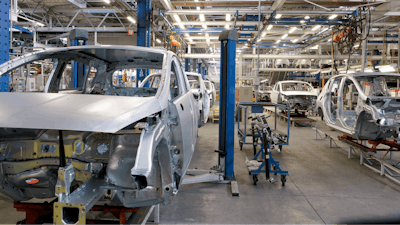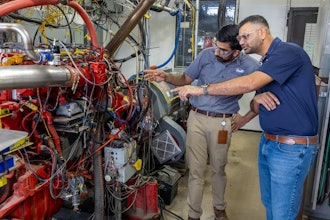
There is a profound transformation within the automotive industry. While it was once dominated by traditional vehicle production, the sector has been redefined by new technological advancements, including electric vehicles (EVs), autonomous driving, and connected car systems. Simultaneously, manufacturers face increasing regulatory demands centered on emissions, safety, and data privacy, while consumers expect personalization, digital integration, and environmental sustainability. Ultimately, these trends are reshaping the industry's future, and there are myriad challenges and opportunities for manufacturers who have no other choice other than to adapt.
With the state of the industry in mind, agile product roadmapping software offers automotive manufacturing companies a dynamic tool for facing and addressing these complex demands. By enabling more robust planning, real-time data integration, and cross-functional collaboration, agile software can help an enterprise better respond to changing regulations, ensure innovation initiatives synchronize with tech trends and place sustainability at the forefront.
This article will examine how adopting product management software for automotive manufacturers can enable companies to remain at the top in a competitive global marketplace.
Major Challenges in Automotive Manufacturing
As a whole, the industry faces numerous automotive manufacturing challenges. Some to consider include:
Technological Advancements and Innovation Cycles
The advent of electric vehicle development, autonomous driving technology, and connected car systems has forced manufacturers to create and release new products faster than ever before. These trends also require manufacturers to engage in shorter, more agile development cycles that allow for rigorous testing and the ability to pivot on a dime.
Regulatory and Compliance Demands
Strict standards are related to safety, environmental impact, and emissions control. These measures vary considerably based on geographic region and undergo regular updates. This requires companies to stay agile and adaptive to maintain global compliance. In turn, operational complexity is amplified and requires ongoing monitoring and maintenance.
Supply Chain and Resource Management
Many issues relate to logistics and resources, especially when sourcing critical materials like lithium and cobalt, which are needed for EV batteries. In addition, reliable global vendor relationships must be maintained to ensure no disruption.
Cost Control and Budget Allocation
Significant investments in research and development for emerging technologies like EVs are non-negotiable. Therefore, high R&D costs, paired with the need to stay competitive, create financial pressures that can influence the pace and quality of innovation. Achieving a balance with operational expenses requires careful budget management.
Workforce Training for New Technologies
Talent resources must be equipped with specialized skills, especially in electric vehicle development and autonomous vehicle manufacturing. To keep pace, employers must invest in continuous training programs that enable employees to use advanced tools, manage complexity and adapt to new processes.
Sustainability and Environmental Impact
This has become a central focus in this sector, and a manufacturer has more to consider than fuel efficiency and emissions reduction alone. Environmental impact must be prioritized with eco-friendly materials, responsible sourcing practices, and waste reduction efforts in all production phases.
Meeting Changing Consumer Expectations
Savvy consumers want personalized, tech-forward experiences in their vehicles, so manufacturers must be flexible and responsive in both product design and delivery. The development process should be able to pivot so vehicles align with digitally connected consumer lifecycles.
How Agile Product Roadmapping Software Can Help Automotive Manufacturers
Agile product roadmapping software allows for quick adaptation to market changes as well as much more.
Streamlined Product Development and Iterative Testing
Agile software can accelerate product development cycles by breaking projects into manageable sprints, letting teams focus on specific tasks and meet tight deadlines. Features and functions can be prioritized, such as testing based on immediate needs, thereby confirming critical advancements in EV and connected vehicle technology.
Effective Compliance Management
Agile roadmapping helps companies remain compliant by tracking tasks, deadlines, and documentation in real-time. By centralizing compliance information, teams will be aligned and aware of the latest requirements, reducing the risk of costly mistakes or oversights. The software can also quickly update when new regulations are introduced.
Optimized Supply Chain Coordination
Agile roadmapping tools enhance collaboration with suppliers because the platform is centralized. This allows for the tracking of inventory, monitoring of delays, and adjusting of schedules in real-time. Supply chain issues can be addressed proactively because the software is completely transparent.
Flexible Budgeting and Resource Allocation
Agile tools feature incremental budgeting so manufacturers can allocate resources more effectively and adjust spending based on changing needs. In turn, significant costs associated with R&D are managed, and financial resources can be directed toward mission-critical areas, which helps control costs while delivering cutting-edge products.
Workforce Upskilling and Knowledge Management
Product roadmapping can make employee training and development much more accessible. Learning tasks can be organized while employee skill development is tracked in accordance with project goals. This approach confirms continuous upskilling on new technologies and processes as they happen, which eliminates information silos existing across the business.
Tracking and Supporting Sustainability Initiatives
Agile roadmapping software provides a clear framework for tracking sustainability projects related to fuel efficiency improvements and the use of recyclable materials. This helps achieve environmental goals and meet sustainability targets within required timelines. Furthermore, by continuously updating the roadmap, manufacturers can experiment with new solutions and adjust their strategies.
Adapting to Consumer Demands
Agile roadmaps can handle shifting consumer preferences. This provides a flexible framework for trying out new features and incorporating real-time feedback. Teams can test different concepts quickly, gather consumer insight, and iterate on designs to meet the market's evolving demands and stay ahead of expectations.
Implementing Agile Product Roadmapping in Automotive Manufacturing
Agile product roadmapping software significantly impacts automotive manufacturing by streamlining the management of complex challenges such as regulatory compliance, supply chain coordination, and continuous innovation. These tools enable manufacturers to remain nimble and adaptable to market demands, regulatory updates, and technology advancements, ensuring smoother operations and faster time-to-market.
Automotive leaders should consider integrating agile software into their tech stack to stay ahead of the competition. Learn about the best product management software for automotive manufacturing and help your company thrive in a sector marked by constant change.






















